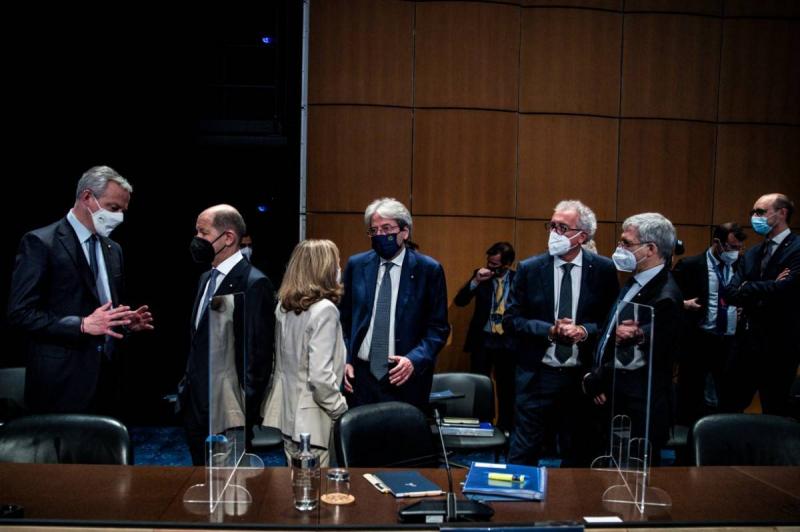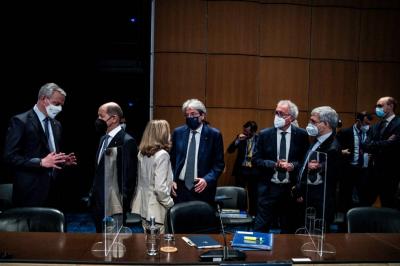Europe has enthusiastically received the U.S. administration's proposal to impose a global minimum tax of at least 15% on corporate profits, bringing the world closer to a deal on comprehensive changes regarding what multinational companies pay and where they pay taxes. German Finance Minister Olaf Scholz stated upon arriving at a meeting with his European counterparts in Lisbon, "This is a really significant advancement," following positive feedback from his French counterpart. Scholz added, "We really have a chance this summer to reach a deal, the agreement we have long been working toward."
**Near Agreement**
The latest proposal in the race towards an agreement among 139 countries involves a tax rate lower than the 21% previously suggested by the United States for profits generated abroad, a rate deemed high by some countries. Before President Joe Biden took office, discussions at the OECD centered around a minimum tax rate of 12.5%. While there are still obstacles, including disputes over how to treat major digital companies like Facebook and Alphabet, which owns Google, Biden's administration has created momentum in the negotiations, which had stalled for years due to technical complexities and transatlantic tensions. The likelihood of reaching an agreement increases the chances of significantly raising tax bills for the largest global companies.
**Boosting Government Revenues**
In 2020, the OECD estimated that a global minimum tax, along with U.S. rules, could bolster government revenues by about $100 billion annually, a number that would rise if a higher tax rate is enacted. The recent U.S. proposal of a 15% tax rate is only part of the equation, as the minimum issue is just one of the cornerstones in the OECD negotiations. European countries welcomed Biden's separate proposal regarding the contentious issue of where companies should pay taxes. However, talks on that matter are ongoing. The U.S. has suggested a simpler, narrower scope where tax revenues are carved from around the top 100 multinational companies. However, officials from other countries express doubts about whether the proposed tax rate will encompass all the big digital companies they aim to target, especially with concerns that Amazon may not be included in the new taxes.
U.S. proposals regarding the first pillar could also lead to significant changes in effective tax rates, particularly for technology hardware manufacturers and pharmaceutical companies, according to research by Morgan Stanley.
**French Reaction**
Upon his arrival in Lisbon, French Finance Minister Bruno Le Maire stated that "the main issue is not the tax rate, even at 15%. It can be a good compromise among the expectations of all OECD members.. the key issue is the establishment of a global framework for taxing digital companies and a minimum tax." The new U.S. proposal still faces opposition from countries like Ireland, which maintains low corporate tax rates as part of a key economic development strategy. Irish Finance Minister Paschal Donohoe remarked last month that taxes could be part of a competitive offer for small countries, and his government's reservations about such a global measure "could be very strong." According to a spokesperson for Donohoe, he has taken note of the U.S. Treasury's comments and looks forward to discussing the matter further with Treasury Secretary Janet Yellen.
Japanese Finance Minister Taro Aso, speaking to reporters in Tokyo, acknowledged the U.S. proposal as a step forward, while emphasizing the need for more discussions. Aso mentioned he expects movement towards global agreements, including taxes on digital companies, at the upcoming G20 summer meeting, but any final agreements may be reached later in 2021.
**Race to Cut Taxes**
Treasury Secretary Yellen is making ambitious efforts to end the "global race to the bottom" concerning corporate taxes. This competition has eroded government revenues that have surged to record debt levels amid the COVID-19 crisis. Yellen's approach signifies a shift from the Trump administration's style and has reinvigorated discussions among about 140 countries on the issue. The Treasury stated on Thursday: "It is essential to work multilaterally to end the pressures of corporate tax competition and the erosion of the corporate tax base." The Treasury emphasized that 15% is the minimum and that discussions should continue to be ambitious and push this rate higher.
The U.S. Treasury Department's proposal for a global minimum corporate tax of at least 15% was announced ahead of a scheduled meeting on June 4-5 of G7 finance ministers in London, which will serve as a forum for major industrialized nations to reach consensus. The Biden administration also hopes to achieve broad agreement among OECD member countries on a global minimum corporate tax before Democratic lawmakers in Congress push to raise taxes on U.S. companies. The White House has proposed raising the corporate tax rate to 28% from 21% to help fund $4 trillion worth of President Biden's long-term economic programs.




